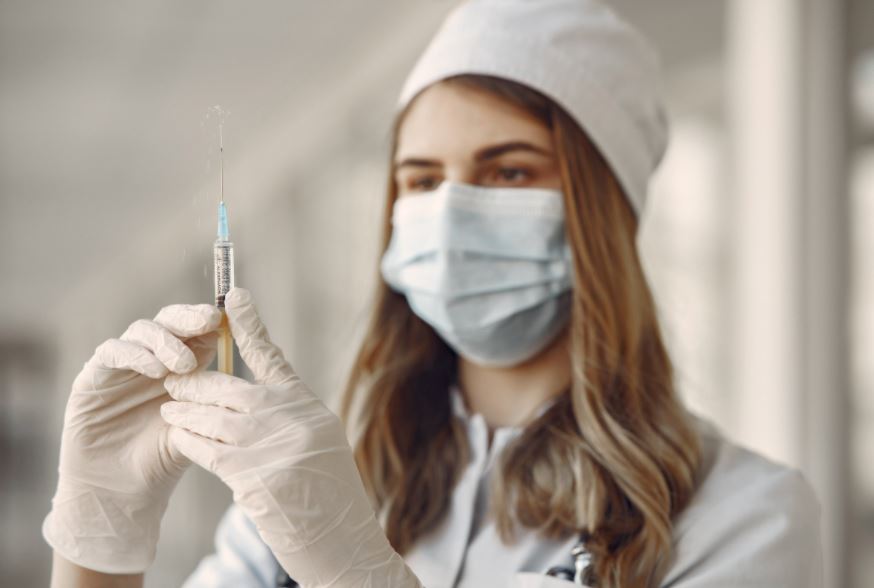
Update on the COVID-19: today at noon

|


|
Governor Gretchen Whitmer, Attorney General Dana Nessel and other state officials today issued statements highly commending bar and restaurant owners for their ongoing compliance with the state’s emergency health orders due to the COVID-19 pandemic. Currently, licensed establishments are strictly prohibited from allowing in-person dining and gatherings, as defined by the Michigan Department of Health and Human Services (MDHHS) Gatherings and Face Mask Order.
“Our bar and restaurant owners have made incredible sacrifices over the past 10 months to keep their communities safe and slow the spread of COVID-19. I want to thank those who have enacted strict safety protocols and worked around the clock to save lives,” said Governor Whitmer. “My administration has been working hard to secure crucial support for these businesses. I was proud to, among other things, negotiate with the legislature to sign a bipartisan supplemental budget that provides support for small business owners like these. I will keep working around the clock on their behalf. Remember, Michiganders, mask up, maintain six feet of social distancing, and avoid indoor gatherings where COVID-19 can spread easily. We will get through this together.”
Whitmer’s financial relief efforts for bar and restaurant owners began last April when she authorized a spirits buyback program for on-premises liquor licensees whose businesses were affected by the health crisis. More than $3.3 million in financial relief went to 670 bar and restaurant owners across the state – a financial lifeline averaging $5,000 for hard-hit hospitality businesses. She recently announced a second liquor buyback that is in the works. In June, the governor signed legislation allowing bars and restaurants to sell cocktails and alcoholic drinks to-go for the first time in Michigan and expanded bars’ seating capacity in outdoor social districts. In July, Whitmer increased the discount on spirits purchased by on-premises licensees from the Michigan Liquor Control Commission (MLCC) from 17 percent to 23 percent for 12 months.
Michigan Attorney General Dana Nessel also praised the state’s bar and restaurant owners.
“I applaud every business owner in Michigan who has stepped up, braced themselves for the storm, and complied with Michigan’s public health emergency orders,” said Nessel. “This pandemic has brought them to their knees, but the vast majority of them have worked hard to stay open during the worst of times. Their creativity, innovation and sheer fortitude have set the gold standard for the rest of us.”
Nessel’s office is working closely with the MLCC as it exercises its enforcement duties to ensure the state upholds its responsibility to protect the lives of its residents. The MLCC, housed in the Department of Licensing and Regulatory Affairs (LARA), issues and renews more than 19,000 liquor licenses – of which approximately 8,500 are for on-premises establishments: bars and restaurants.
“We must certainly recognize these business owners for their compliance with emergency health orders during this unprecedented time,” said LARA Director Orlene Hawks. “They have made great sacrifices limiting their business operations and for that, we are all grateful. By adhering to these temporary health safety measures, 2021 will be a great comeback year for these businesses who are the backbone of our economy.”
The MLCC Chair Pat Gagliardi noted that the vast majority of liquor licensees are compliant with emergency public health orders and have taken the high road, setting high standards for the industry.
“The MLCC thanks and appreciates the thousands of liquor licensees who are following the emergency orders and are keeping us safe,” said Gagliardi. “I am extremely proud of these business owners who have set an exemplary example during these tough times. These licensees know that having a liquor license is a privilege that comes with responsibilities; namely, protecting consumers and the general public.”
Of the approximately 8,500 on-premises liquor licensees in the state, the MLCC has suspended the liquor licenses of a total of 32 establishments for violations due to the COVID-19 pandemic since last September. The licensees’ multiple violations of the current MDHHS order include allowing non-residential, in-person gatherings; providing in-person dining; failure to require face coverings for staff and patrons; and failure to prohibit patrons from congregating. During “normal times” the use of Emergency Suspensions by the MLCC is generally infrequent. Over the last seven years – not including the recent Emergency Suspension Orders – there have been approximately 15 such notated suspensions, due to various causes.
The MLCC’s priority is to enforce emergency orders, knowing that these orders are targeted and temporary. The MLCC Enforcement Division is working diligently to ensure that licensees are compliant with the MDHHS orders. It investigates all complaints relative to allegations of violations of the Code, Rules and Executive and Emergency Orders, especially during this COVID-19 pandemic. Any licensed establishment that is in violation of the MDHHS emergency order will be held strictly accountable and risk suspension or revocation of its license.
To date, there have been more than 519,082 confirmed cases of COVID-19 in Michigan, resulting in more than 13,354 deaths.
Information around this outbreak is changing rapidly. The latest information is available at Michigan.gov/Coronavirus and CDC.gov/Coronavirus.
It is the mission of the MLCC to make alcoholic beverages available for consumption while protecting the consumer and the general public through the regulation of those involved in the importation, sale, consumption, distribution, and delivery of these alcohol products.

January 11, 2021
Contact: Lynda Robinson, 313-348-8220
The Michigan Unemployment Insurance Agency (UIA) has started issuing $300 weekly Pandemic Unemployment Compensation (PUC) payments to an estimated 365,000 claimants on regular state unemployment insurance (UI) and Extended Benefit programs this weekend.
The PUC supplement, which is payable from Dec. 27, 2020 through March 13, 2021, provides an additional $300 per week to all eligible unemployment recipients who receive at least $1 for the week. Claimants do not need to take any action to receive this additional weekly benefit, it will be paid automatically after they certify. The additional payment comes from an extension of the federal COVID-19 relief package passed in December.
Workers who were on Pandemic Unemployment Assistance (PUA) and Pandemic Emergency Unemployment Compensation (PEUC) continue to have no actions to take at this time. They will not be able to complete certifications and payments will not be issued for weeks after Dec. 26 until the technical updates to the UI system are completed per the recently received U.S. Dept. of Labor (USDOL). UIA staff have been working nights and weekends to complete the updates as soon as possible. This will only be a disruption and claimants will be made whole once the extensions are fully implemented. An estimated completion date is not available at this time.
“The UIA team worked tirelessly to ensure that Michigan was one of the first states to implement the PUC program,” said Liza Estlund Olson, acting director of UIA. “And now that we’ve received additional USDOL guidance we remain committed to implementing the remaining federal PUA and PEUC programs as quickly possible to get money out the door. These workers should rest assured that they will not miss out on any benefits and will receive every dollar they are entitled to once the programs are fully implemented.”
PEUC provides 11 additional weeks of benefits for those who have exhausted regular state unemployment benefits. PUA provides unemployment benefits to those not typically eligible for unemployment including self-employed and gig workers.
Claimants do not need to contact the UIA regarding these changes at this time. Continue to monitor the UIA website at Michigan.gov/uia for more information as it becomes available.


FOR IMMEDIATE RELEASE January 11, 2021 Media Contact: [email protected]
Governor Whitmer Requests Authorization to Directly Purchase up to 100,000 Doses of the Safe, Effective COVID-19 Vaccine for the State of Michigan
LANSING, Mich. — Today, Governor Gretchen Whitmer sent a letter to Health and Human Services Secretary Alex Azar requesting permission to directly purchase up to 100,000 doses of the safe and effective COVID-19 vaccines for the State of Michigan. Governor Whitmer also noted that since she and eight other governors sent a letter to the Trump Administration requesting that they distribute the millions of safe and effective COVID-19 vaccine doses that are currently being held back, she has not received a response.
“We remain ready to accelerate distribution to get doses into arms,” said Governor Whitmer. “Toward that end, I am writing to request permission for the State of Michigan to make a one-time purchase of up to 100,000 doses of COVID-19 vaccine directly from Pfizer to be distributed and administered consistent with CDC guidelines and the FDA’s Emergency Use Authorization (EUA) for the Pfizer COVID-19 Vaccine.”
Governor Whitmer has been working around the clock with leaders in state government and local health departments to cement Michigan’s status as a nationwide leader in vaccine distribution. On Wednesday, the CDC released new data that shows Michigan is in the top 15 states when it comes to vaccine distribution.
Last week, Governors Gretchen Whitmer, Gavin Newsom (CA), Laura Kelly (KS), J.B. Pritzker (IL), Tim Walz (MN), Andrew Cuomo (NY), Tony Evers (WI), Jay Inslee (WA), and Kate Brown (OR) sent a letter to Secretary Azar and General Perna requesting that the federal government distribute the millions of safe and effective COVID-19 vaccine doses that are currently being held back by the Trump Administration. According to publicly reported information, the federal government currently has upwards of 50% of currently produced vaccines held back by the administration for reasons unknown. After the governors sent the letter, the incoming Biden administration announced that they will release all of the available vaccine doses that the Trump Administration is holding back.
|


FOR IMMEDIATE RELEASE January 11, 2021 Contact: [email protected]
Governor Whitmer Lowers Flags to Honor Two U.S. Capitol Police Officers
LANSING, Mich. – Governor Gretchen Whitmer has ordered U.S. and Michigan flags within the State Capitol Complex and upon all public buildings and grounds across the state of Michigan to be lowered to half-staff immediately from January 11 through January 13 at sunset to honor United States Capitol Police Officers Brian D. Sicknick and Howard Liebengood.
“Our nation has a heavy heart following the deaths of United States Capitol Police Officers Brian Sicknick and Howard Liebengood,” Whitmer sa
The State of Michigan recognizes the duty, honor and selfless service of United States Capitol Police Officers Brian D. Sicknick and Howard Liebengood by lowering flags to half-staff. Michigan residents, businesses, schools, local governments and other organizations also are encouraged to display the flag at half-staff.
To lower flags to half-staff, flags should be hoisted first to the peak for an instant and then lowered to the half-staff position. The process is reversed before the flag is lowered for the day.
Flags should be returned to full-staff by Thursday, January 14. |